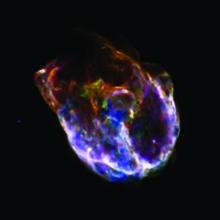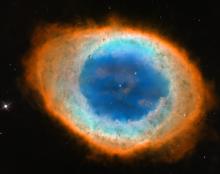Listen to today's episode of StarDate on the web the same day it airs in high-quality streaming audio without any extra ads or announcements. Choose a $8 one-month pass, or listen every day for a year for just $30.
You are here
Marie Curie
Here’s a trivia question for you: Who was the first person to win two Nobel Prizes? It’s not Albert Einstein — he received only one. Instead, it was Marie Curie. She was also the first woman to win the prize, and is still the only person to win in two different scientific categories.
She was born 150 years ago today, in Warsaw, as Maria Sklodowska. As a schoolgirl, she showed an aptitude for science. Women weren’t allowed in Polish universities, though, so she attended a clandestine university. Later, she studied in Paris, where she earned degrees in physics and math.
Also in Paris, she married Pierre Curie, a scientist and teacher. They worked together until his death in 1906.
Marie was interested in the recent discovery of X-rays. She studied uranium, which produced X-rays. She suggested that the rays came from the uranium atoms. At the time, scientists thought that atoms didn’t change, and couldn’t be split into smaller pieces. Marie’s astounding work showed otherwise.
Later, she isolated two previously unknown elements that also produced radiation — a process that took years.
In 1903, Marie and Pierre shared the Nobel Prize for physics with another scientist for their studies of X-rays. And in 1911, she alone was awarded the Nobel for chemistry for her discovery of the two elements, polonium and radium.
Curie continued her research for many years. Eventually, she died of radiation poisoning — killed by the elements that brought her fame.
Script by Damond Benningfield






